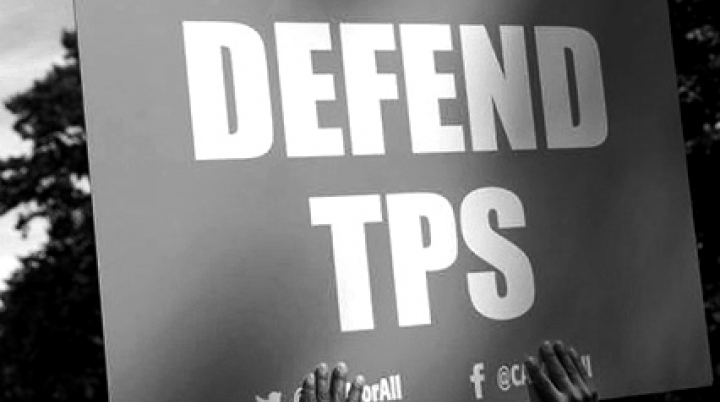






Washington, D.C., May, 4th 2018.- The Center for Justice and International Law (CEJIL) condemns the decision by the Department of Homeland Security of the United States (DHS) to terminate the Temporary Status Program (TPS) for people from Honduras, with an 18-month delay. This means that up to 57,000 Hondurans and their nearly 53,000 US-born kids could face a situation of extreme uncertainty and vulnerability.
“Once again, the administration is making a callous and inhumane decision that will rip more families apart and continue to ignore fundamental human rights to the protection of families and the rights of children, many of whom are American citizens and have lived in this country for nearly 20 years,” said Francisco Quintana, Program Director for the Andean Region, North America and the Caribbean. “Furthermore, Honduras is faced with high levels of gang violence, corruption and impunity. For many, the cancellation of TPS is a death sentence. Moreover, after nearly six months of political turmoil stemming from last year’s presidential election, the country does not have the infrastructure to receive a sudden influx of tens of thousands of men, women and children. This will place an additional burden on the country’s troubled institutions and weak economy, exacerbating a possible collapse.”
TPS was granted to Hondurans in 1998 after Hurricane Mitch tore through the country. The program allowed beneficiaries to work and reside legally within the United States. Since then, multiple administrations renewed the program several times in recognition of the high levels of crime social turmoil, and recurring natural disasters in Honduras. The last TPS extension was granted for six months on November of 2017 during which time a wave of violent protests swept through the country after a contested presidential election.
With this decision, TPS beneficiaries will now have until January 5, 2020 to return to their country of origin or get a residence permit through another legal means. Once the status is revoked, these people will be at risk of deportation. However, it should be noted that the United States must comply with international obligations which require that all individuals facing a potential deportation must undergo an individualized case evaluation, which determines whether or not they will be returned to an at-risk situation and analyzes the possible impact on their rights as individuals and children, some of them being American citizens.
This is the fourth group of TPS beneficiaries from Latin America and the Caribbean affected by status revocation. Previously, in November 2017, the Trump Administration canceled TPS for beneficiaries from Haiti (50,000), Nicaragua (2,500), and El Salvador (200,000). As such, this additional revocation is fueling the likelihood of a regional crisis once the deadlines for return go into effect.
“By cancelling the TPS program, the United States will force thousands of people to find a new place to project their lives, either in Honduras or some other country in Central America. Furthermore, many Hondurans will likely try to resettle in new countries which may not have the economic capacity and infrastructure to assist them, or maintain precarious conditions for the protection and promotion of human rights. This will not only affect hondurans, but also those who already reside within receiving nations. As a result, the regional effects of this will be enormous.” said Program Director for Central America and Mexico, Marcia Aguiluz.
Help us continue this critical and urgent work with a donation!
DONATE NOW